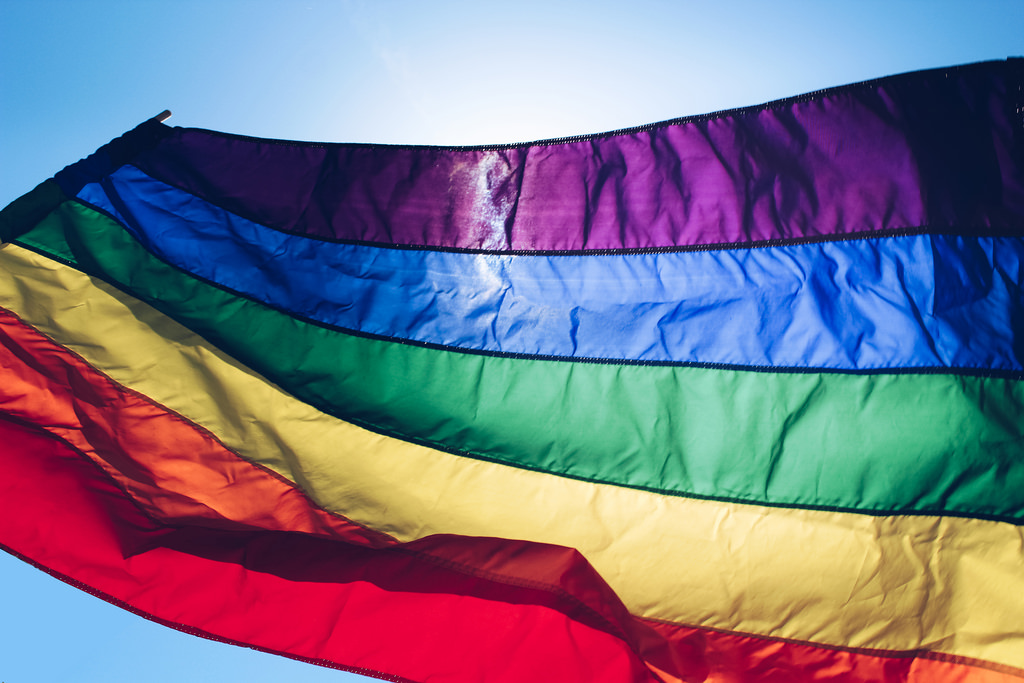Can homophobia be a crime? Brazilian court ruling can change history

- Country:
- Brazil
Homophobia and transphobia could become crimes in Brazil if its highest court rules in favour of reform on Thursday, amid fears that its right-wing president could roll back other LGBT+ gains.
Four out of the 11 judges on the Supreme Federal Tribunal already ruled in February that anti-LGBT+ acts should be criminalised but the remaining votes were postponed because proceedings lasted longer than expected. The two cases, brought by Brazilian rights group ABGLT and the Popular Socialist Party, ask the court to acknowledge that Congress's failure to criminalise violence against gay people is "unconstitutional" and to set a deadline for legal reform.
"It would mean that LGBT (people) would actually have real protection," said David Miranda, one of the country's only openly gay congressmen. "We need a major law to protect and give rights to the LGBT community." Homophobia is common in Brazil, a deeply religious country where both the Catholic Church and the popular evangelical Christian movement are frequently critical of gay rights.
But like many Latin American countries, Brazil is also home to a growing population of young, educated urban liberals eager to stand up for gay and trans rights. The supreme court in 2011 legally recognised same-sex partnerships and in 2015 allowed LGBT+ couples to adopt.
It also ruled in 2018 that the government can no longer require trans people to have surgery in order to legally change their gender identity. But the election last year of President Jair Bolsonaro, a former army captain who has described himself as a "proud" homophobe, has raised fears of a gay rights reversal.
At least 320 LGBT+ people were killed in Brazil in 2018 and 126 murders have been reported so far this year, according to watchdog group Grupo Gay da Bahia. Brazil is also the most dangerous country in the world to be trans, according to the Trans Murder Monitoring project, with at least 167 people killed in the 12 months up to September 2018.
Miranda introduced a bill this month that would provide legal protections for gay and trans victims of crimes, such as imposing restraining orders against their attackers. "Resilience is in our blood and bones," he said. "No president that's homophobic, LGBT-phobic and transphobic is going to stop us from living our lives and loving who we love."
PANIC
For Roberto, the court's decision is personal. Coming home one afternoon four years ago, he was stabbed in the neck by a neighbour yelling homophobic slurs. "(He said) that I was a despicable being, an inferior being and that I should die," Roberto, who declined to give his real name, told the Thomson Reuters Foundation via text message.
"Every time I see the scar, or pass my hand across it, I remember what happened - bleeding, being in hospital, almost dying in my own apartment," the 37-year-old said. Roberto also lost his job and many of his friends because of the trauma. "I had panic attacks," he said. "It took me a long time to be able to go back out into society."
Although the attacker was charged with "bodily harm", he was released that same day, according to Roberto, taking advantage of a legal provision that allows some offenders to pay a fine instead of going to jail.
Outlawing homophobic violence and imposing stronger penalties could deter future attacks, Roberto said. "If the law on the criminalisation of homophobia had already been approved, the bastard who stabbed me would be in prison. He wouldn't be out on the street, able to hurt some other gay person," he said.
JAIL
A draft law criminalising homophobic attacks was approved by Brazil's lower house of Congress, and in 2006 introduced to the upper house.
But it faced fierce opposition from religious groups and, after eight years of debate, it was shelved in accordance with congressional rules. In Thursday's case, the supreme court has been asked to rule that homophobia and transphobia are based on the belief that some social groups are inferior, and to equate this to racism, which is an unbailable offence in the 1988 constitution.
"Cases of LGBT-phobia would no longer be considered as aggression, attempted homicide, or any of the various forms that we have in common law," said Renan Quinalha, a law professor at the Federal University of Sao Paulo. "It would be a specific crime, like racism."
As four judges have already ruled in favour of criminalising homophobia and transphobia, Quinalha said it is likely at least two others will follow suit - providing an LGBT+ win in court. Campaigners said the case has become even more crucial with the election of Bolsonaro, who has removed LGBT+ concerns from the responsibilities of the human rights ministry and declared that Brazil must not become a "gay tourism paradise".
"(A positive ruling) would definitely be a challenge for the current administration, considering that the president has made a career out of scapegoating LGBT people," said Leandro Ramos, a campaigner at LGBT+ rights group All Out. "We can get killed or attacked on the streets just because of who we are ... So I think it gives a different perspective to LGBT Brazilians: that this is not going to be tolerated."
(With inputs from agencies.)
ALSO READ
At least 8 dead after bus crash in northeastern Brazil
Brazil authorities open investigations into boat with decomposed bodies
Brazil court says government must compensate victims of stray bullets in police raids
Fishermen spot boat with 20 corpses floating off the coast of northeastern Brazil, reports say
Tennis-Brazilian umpire suspended until 2031 for corruption and betting violations










